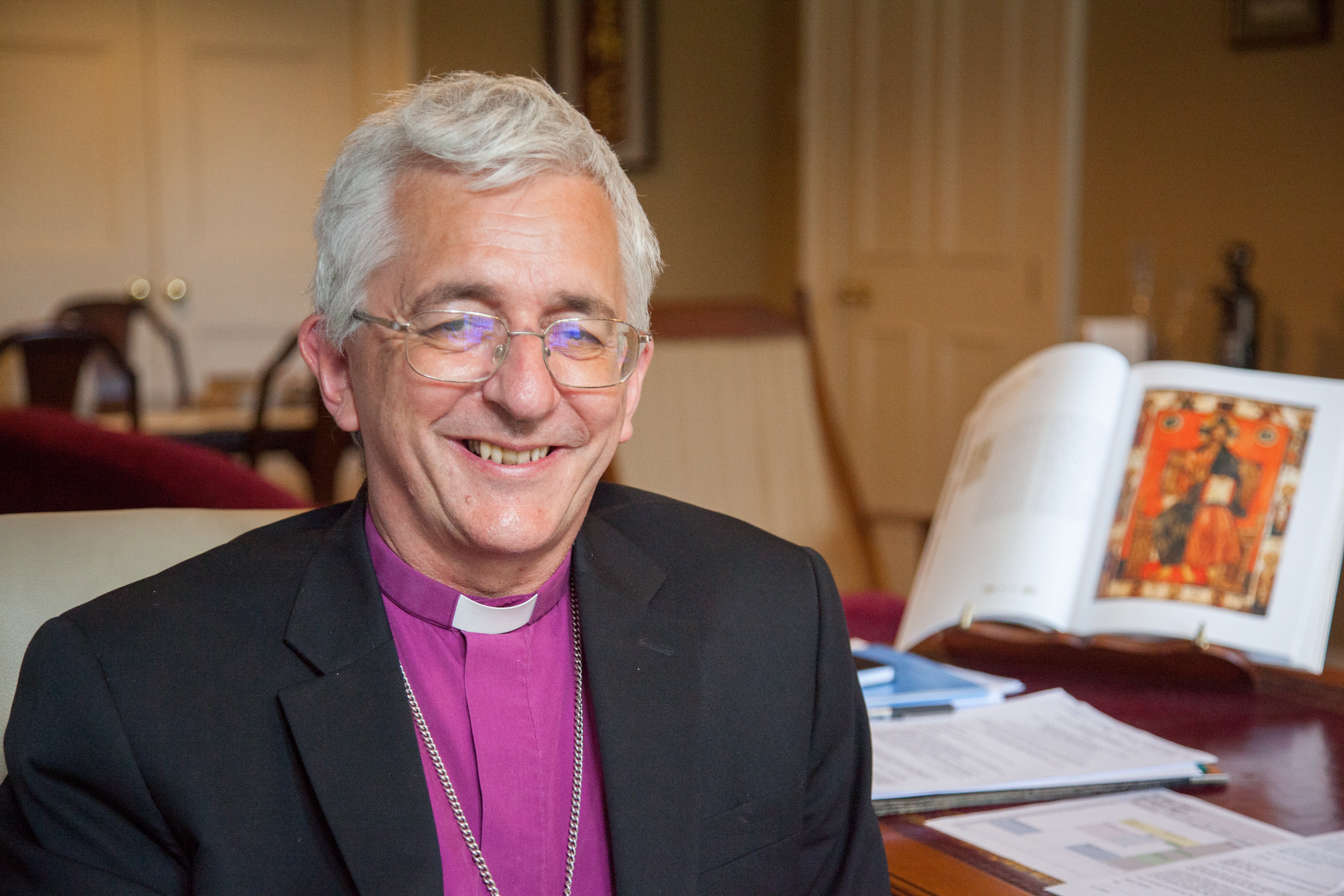
The Bishop of Lichfields pastoral letter for September 2017
Earlier this summer, I led a group of pilgrims through Germany in the footsteps of Martin Luther, to mark the 500th anniversary of the beginning of the Reformation, when Luther posted 95 theses on the church door at Wittenberg, protesting against the exploitation of peoples faith through the selling of indulgences. We visited many remarkable sites in our travels, telling us the story of those extraordinary events which both renewed and divided Christian Europe. One of the most memorable for me was a park in the Rhineland city of Worms, on the site of the building where the Diet or parliament of the Holy Roman Empire assembled in 1521 to hear Luthers defence of his teachings as he faced charges of heresy. Set into the ground in the park are two enormous metal shoes, marking the spot where he is supposed to have declared defiantly: Hier stehe ich; ich kann nicht anders, Here I stand, I can do no other. Whether he actually uttered these actual words is open to question, but they have resonated through five centuries, and well express Luthers conviction that he had no choice in the matter, because he felt that his conscience was captive to the Word of God, and he knew that he could not act against conscience.
In asserting the primacy of conscience in this way, Luther was in one sense simply repeating the unquestioned teaching of the church throughout the ages before him and since. But he was also ushering into the world a new and extraordinary force, which allied with the recently developed power of mass communication (on the morning of our Worms day, we also visited the site Gutenbergs pioneering printing press in the nearby city of Mainz) to destroy the unity of medieval Christendom and bring a powerful sense of personal conviction and an unwillingness to compromise into religious disputes. The appeal to individual conscience in defiance of established authority remains potent in our own time. Our German guide, who had grown up in the anxiously totalitarian state of the German Democratic Republic (East Germany) told us how the officially sponsored celebrations of the 500th anniversary of Luthers birth in 1983 had gone badly wrong from the GDRs point of view. The East German government had wanted to portray Luther as a proto-Marxist hero of the common man against an alliance of religion and capitalism, but demonstrators in the city of Leipzig had turned Luthers reported words against the authoritarian regime. Asserting the primacy of a free conscience over against the forces of the communist state, they had chanted in the streets Here we stand, we can do no other; so the seeds were sown for the Peaceful Revolution which in 1989 led to the destruction of the Berlin Wall, the collapse of the GDR, and eventually German reunification.
Marking in this and the coming years our own very different history of the English Reformation, we will be very aware that in this country too politics and religion were closely intertwined, and religious language remains a powerful inspiration for many conscientiously involved in our own political life too. Yet at heart Luthers message was rooted in the claims of faith: it was the Word of God which held his conscience captive, not any secular ideology, and it was for what he saw as Gospel truth that he contended, particularly in his insistence that sinful humans can only be justified by faith in Jesus Christ. Equally, while there was a political motivation to the Catholic reaction to Luther, many sincere Christians were also deeply distressed by the divisions which they saw the inflicted on the Body of Christ, and conscientiously resisted the Reformation as a result. Five hundred years later, we must recognise and honour the integrity of followers of Jesus on every side of the myriad Reformation disputes; and the growth of an ecumenical spirit has seen substantial agreement reached between different Christians over issues where they once seemed irrevocably divided including the doctrine of justification.
It is that spirit that I will be joining with Christians of several different traditions including Roman Catholics, Methodists, Pentecostals, Reformed, Baptists, Orthodox and Lutherans as well as Anglicans on 23rd September walking from the Roman Catholic Cathedral in Birmingham our Cathedral in Lichfield. The two are of course linked by the gentle and generous figure of St Chad, whose relics are enshrined in Birmingham and whose shrine in Lichfield remains a place of pilgrimage. From an age before the great Reformation division, Chad reminds of the primary calling which we share as Christians: to live as Jesus disciples and share with the people of our own time the good news of his kingdom. I hope that many of you will be able to join us as pilgrims on this shared walk, and that many more of you will be praying with us and for us. For myself, I will be wearing a pair of socks that was given to me at my installation by Bishop Gotthard of our companion diocese of Nordkirche in Germany, and at every step between Birmingham and Lichfield I will remember the message printed on those socks: Hier stehe ich, ich kann nicht anders I can do nothing other today than to stand alongside my fellow Christians of different churches as we follow Christ together in Chads footsteps.
+Michael
September 2017